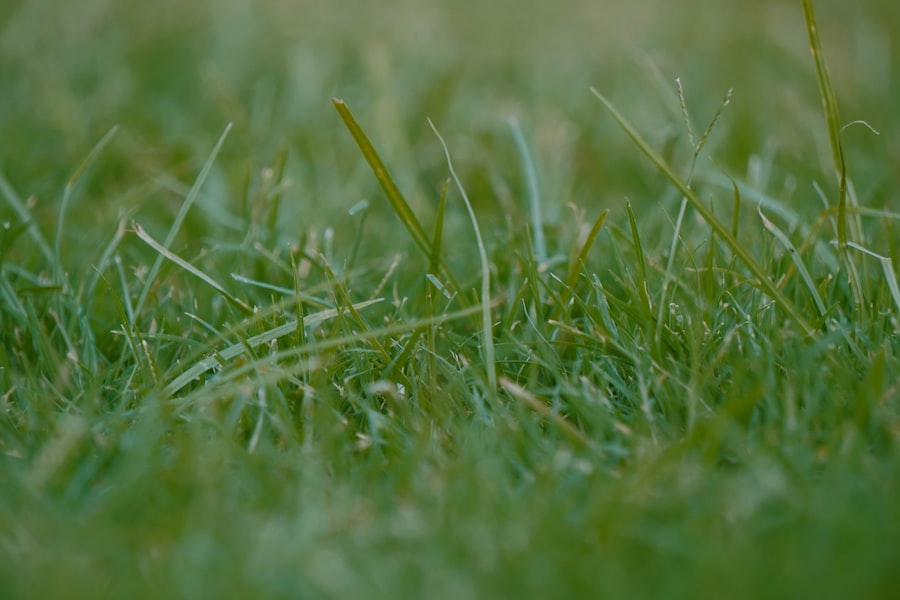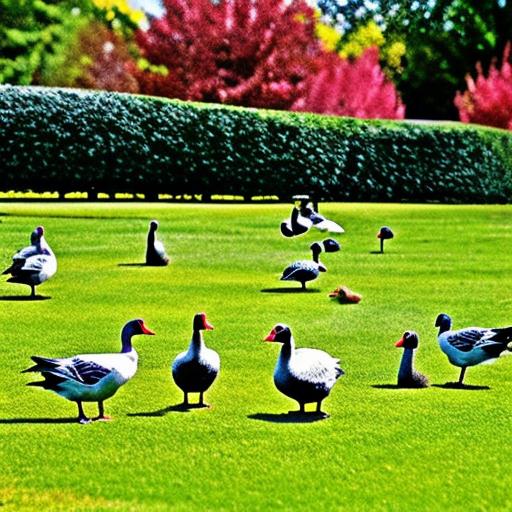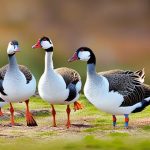Geese can be a beautiful sight to behold, but when they start invading your lawn, they can quickly become a nuisance. Geese are attracted to lawns because they provide a source of food and water, as well as a safe place to rest and nest. In this article, we will explore different methods of geese control that can help you reclaim your lawn. From natural deterrents to physical barriers, there are various strategies you can employ to keep geese away.
Key Takeaways
- Geese are social animals that mate for life and are protective of their young.
- Geese can cause damage to lawns, leave droppings, and pose a potential health risk.
- Natural deterrents for geese include planting certain types of vegetation and using noise-making devices.
- Physical barriers such as fences and netting can be effective in keeping geese off your lawn.
- Decoys such as fake predators or reflective tape can scare geese away.
Understanding the behavior of geese
Before we delve into the different methods of geese control, it is important to understand their behavior. Geese are social animals that live in flocks and are highly adaptable. They are attracted to lawns because they offer a readily available food source in the form of grass and insects. Additionally, lawns provide open spaces for geese to rest and nest, as well as easy access to water sources such as ponds or lakes.
The dangers of geese on your lawn
While geese may seem harmless, having them on your lawn can pose several dangers. One of the main concerns is property damage. Geese have a voracious appetite and can quickly strip your lawn of grass, leaving behind unsightly patches of dirt. They can also leave behind droppings that not only make your lawn look unappealing but can also pose health risks.
Furthermore, geese can become aggressive, especially during nesting season when they are protecting their young. They may hiss, bite, or chase after humans or pets that come too close to their nests. This can be particularly dangerous for children or individuals with mobility issues.
Natural deterrents for geese
If you prefer a more natural approach to geese control, there are several deterrents you can try. One effective method is planting certain types of vegetation that geese find unappealing. For example, tall grasses or shrubs with thorny branches can make it difficult for geese to access your lawn. Additionally, geese are less likely to graze on lawns that have been treated with organic repellents, such as garlic or hot pepper sprays.
Another natural deterrent is the use of predator decoys. Geese are wary of predators and will avoid areas where they sense a threat. Placing decoys of natural predators, such as coyotes or owls, can help deter geese from your lawn.
Installing physical barriers to keep geese off your lawn
If natural deterrents are not effective, you may need to consider installing physical barriers to keep geese away. One option is to install a fence around your property. A fence should be at least three feet high and have small gaps or mesh to prevent geese from squeezing through. Additionally, you can install netting over ponds or lakes to prevent geese from accessing the water.
Another physical barrier option is the use of floating barriers. These are floating devices that create a physical barrier between the geese and your lawn. They can be placed in ponds or lakes to prevent geese from landing and accessing your property.
Using decoys to scare geese away

Decoys can be an effective method of scaring geese away from your lawn. There are various types of decoys available, including motion-activated ones that mimic the movement of predators. These decoys can be placed strategically around your lawn to create the illusion of a predator presence and deter geese from landing.
It is important to note that decoys should be moved regularly to prevent geese from becoming accustomed to their presence. Additionally, using a combination of different types of decoys, such as predator decoys and reflective decoys, can increase their effectiveness.
Creating an uninviting environment for geese
Making your lawn less attractive to geese can also help deter them from landing. One way to achieve this is by removing standing water sources, such as birdbaths or puddles. Geese are attracted to water and will be less likely to stay in an area where there is no readily available water source.
Additionally, keeping your grass short and well-maintained can make it less appealing to geese. Regularly mowing your lawn and removing any fallen leaves or debris will make it less inviting for geese to graze.
Proper lawn maintenance to discourage geese
Proper lawn maintenance goes beyond keeping the grass short. It also involves addressing any underlying issues that may be attracting geese. For example, if you have a pond or lake on your property, consider installing a fountain or aerator to create movement in the water. Geese are less likely to land in areas with moving water.
Furthermore, addressing any drainage issues on your property can help prevent the formation of standing water, which can attract geese. Ensuring that your lawn has proper drainage and redirecting water away from your property can discourage geese from landing.
Training your dog to chase geese away
If you have a dog, you can utilize their natural instincts to help control geese on your lawn. Certain breeds, such as Border Collies or Labrador Retrievers, are particularly well-suited for this task. Training your dog to chase geese away can be an effective method of geese control.
However, it is important to note that not all dogs are suitable for this task, and training should be done in a humane manner. It is crucial to ensure that your dog does not harm the geese and that they are trained to only chase them away without causing injury.
Seeking professional help for geese control
In some cases, it may be necessary to seek professional help for geese control. Professional wildlife management companies specialize in geese control and can provide effective and humane solutions. They have the knowledge and experience to assess your specific situation and recommend the most appropriate methods for geese control.
Professional services may include the use of trained dogs, the installation of physical barriers, or the implementation of other geese deterrents. They can also provide ongoing maintenance and monitoring to ensure that geese do not return to your property.
The importance of being humane in geese control efforts
While it is important to protect your property from geese damage, it is equally important to be humane in your geese control efforts. Avoid using methods that can harm or injure the geese, such as trapping or poisoning. Instead, focus on deterrents and strategies that encourage geese to find alternative habitats without causing them harm.
In conclusion, there are various methods of geese control that can help you reclaim your lawn. From natural deterrents to physical barriers and decoys, there are options available for every situation. It may take some trial and error to find what works best for you, but with persistence and patience, you can successfully keep geese away from your lawn. Remember to prioritize humane methods and seek professional help when necessary.
If you’re looking for effective ways to keep geese off your lawn, you might also be interested in learning about the benefits of having chickens in your backyard. Chickens can help control pests, provide fresh eggs, and even serve as entertaining pets. In fact, Poultry Wizard has a helpful article on converting a shed into a chicken coop, which can be a great option for those who don’t have much space or want to repurpose an existing structure. Check out their article here to discover how you can create a cozy and functional home for your feathered friends.
FAQs
What are some effective ways to keep geese off the lawn?
There are several effective ways to keep geese off the lawn, including using decoys, installing fencing, using repellents, and modifying the landscape.
What are some natural repellents that can be used to keep geese away?
Some natural repellents that can be used to keep geese away include planting certain types of vegetation, using predator urine, and using noise deterrents.
What are some common mistakes people make when trying to keep geese off their lawn?
Some common mistakes people make when trying to keep geese off their lawn include using ineffective methods, not being consistent with their efforts, and not addressing the root cause of the problem.
What are some long-term solutions for keeping geese off the lawn?
Some long-term solutions for keeping geese off the lawn include modifying the landscape to make it less attractive to geese, using physical barriers like fencing, and implementing a comprehensive management plan.
What are some potential risks associated with using chemical repellents to keep geese away?
Some potential risks associated with using chemical repellents to keep geese away include harm to other wildlife, damage to the environment, and potential health risks to humans and pets. It is important to use these products carefully and according to the manufacturer’s instructions.
Meet Walter, the feathered-friend fanatic of Florida! Nestled in the sunshine state, Walter struts through life with his feathered companions, clucking his way to happiness. With a coop that’s fancier than a five-star hotel, he’s the Don Juan of the chicken world. When he’s not teaching his hens to do the cha-cha, you’ll find him in a heated debate with his prized rooster, Sir Clucks-a-Lot. Walter’s poultry passion is no yolk; he’s the sunny-side-up guy you never knew you needed in your flock of friends!







